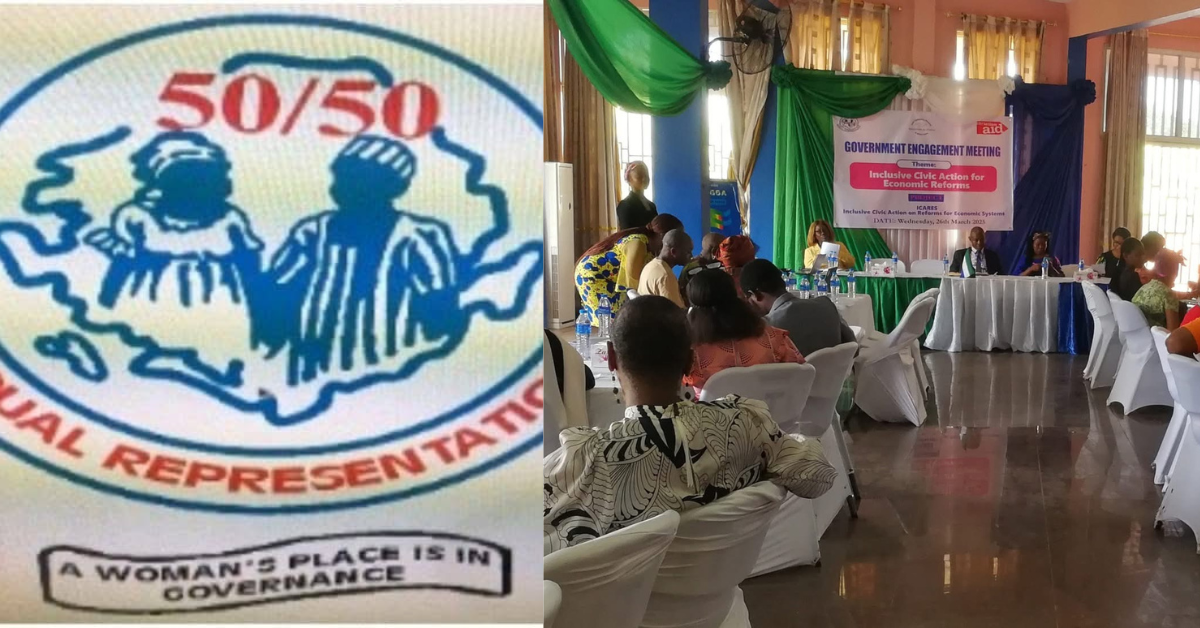The 50/50 Group Sierra Leone, in collaboration with the Inter-Religious Council Sierra Leone, and with Support from Christian Aid, hosted a significant Government Engagement Meeting aimed at promoting economic inclusion and enhancing civic space for citizens, particularly women.
The initiative, part of the Inclusive Civic Action for Reforms on Economic Systems (ICARES) Project, was held at the 50/50 Group Conference Hall and brought together government officials, civil society members, and advocacy groups to address pressing economic participation issues.
Professor Fredline M’Cormack-Hale, President of the 50/50 Group, opened the meeting by highlighting the need for equitability, transparency, and unity in tackling entrenched inequalities in Sierra Leone’s economic framework. “Our agenda is comprehensive, featuring a data-driven presentation to inform our discussions, insights from advocates of civic space, and community-driven recommendations,” she stated.
The professor pointed out that despite some legal reforms, women still face systemic barriers within the financial system. She called for decisive action to overcome those challenges and create an economy that is inclusive of women, especially those in the informal sector.
A key presentation was delivered by Naasu Fofanah-Susue, who focused on women’s financial empowerment. She discussed the barriers women in the informal sector encounter, particularly in accessing financial resources, and introduced the Women’s Banking Initiative. This program aims to establish a women-only commercial bank that would provide tailored financial solutions, including low-interest loans, to support female entrepreneurs.
Naasu Fofanah-Susue, the Ci-Chair of the Bank of Sierra Leone’s Financial City Working Group, emphasized the need for trust in financial institutions among women, a trust that has been diminished by previous experiences. She proudly shared that the initiative has attracted significant investments from the commercial sector, signaling a strong belief in its success.
During the meeting, Charles Keif-Kobai presented insights on the importance of civic space for democracy, stating that an open civic space enhances policy-making, fosters freedom of expression, and strengthens democracy. He cautioned that a narrowing civic space could undermine government accountability and hinder social progress.
His sentiments were echoed by Madam Zainab, a consultant, who recommended reforms in various areas, including Property and Asset Management and Land Management, to better protect individual rights and foster community relationships.m
John Kelly Marah from Civic Hub provided a critical overview of laws impacting civic engagement, warning against excessive regulation that restricts free expression, asserting that they need policy reforms that ensure the protection of fundamental freedoms while maintaining necessary regulations.
The event concluded with a collective call to action for government representatives and civil society actors to work together towards implementing the proposed reforms, signifying a crucial step towards achieving inclusive economic reform and enhancing civic engagement in Sierra Leone, reflecting the commitments of the 50/50 Group and its partners to promote social justice and bridge existing gaps in various sectors.











